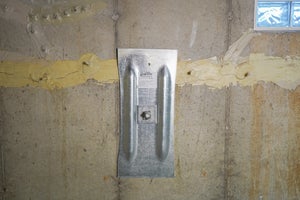Bowing Basement Walls
Have you noticed bowing in your basement walls? Groundworks delivers permanent solutions to your foundation issues.
Schedule Inspection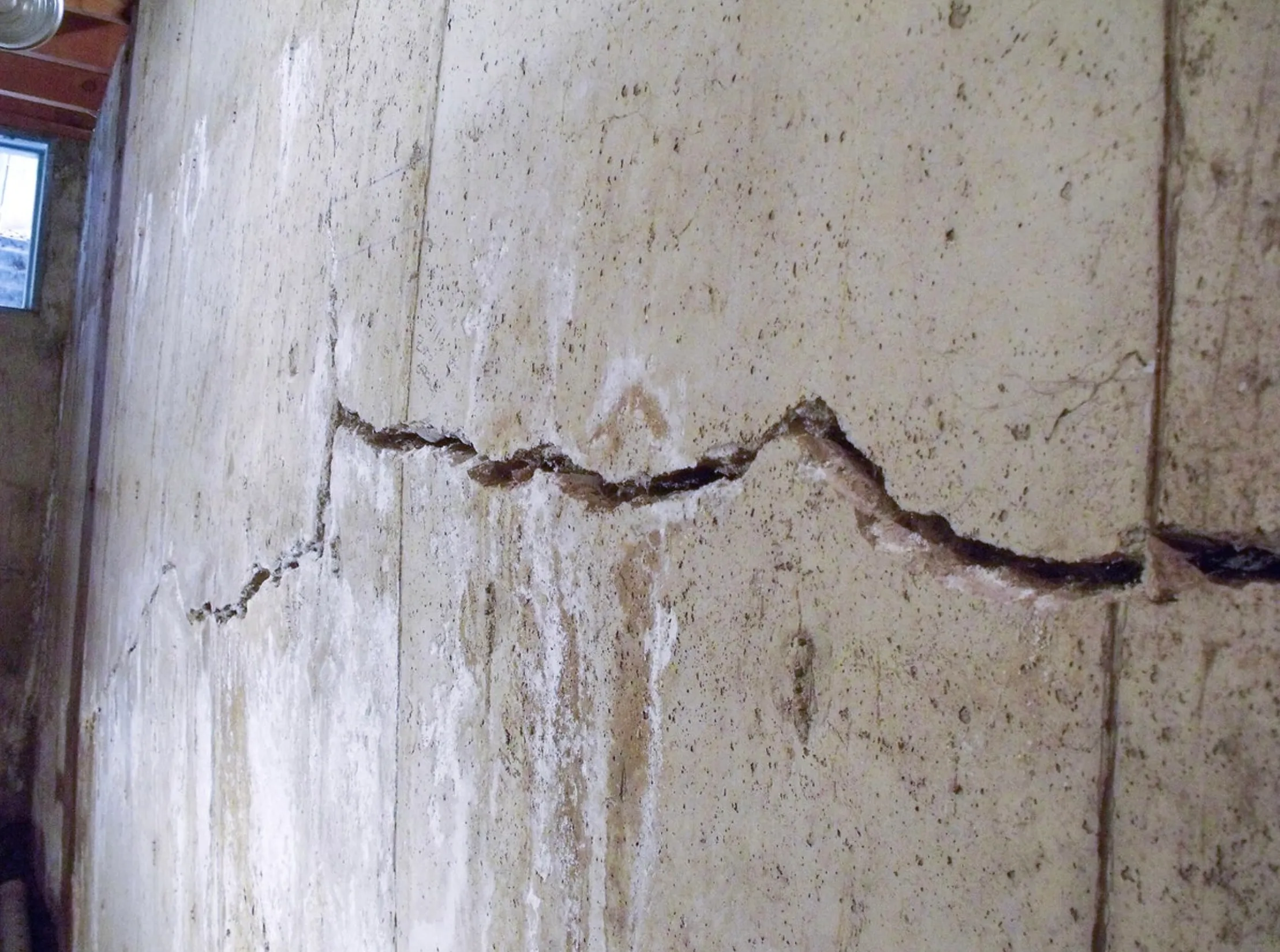
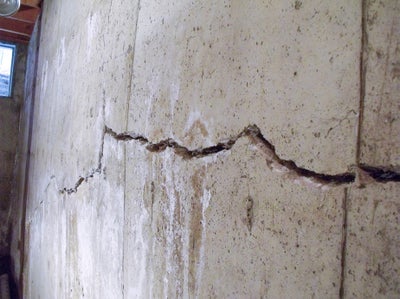
Your basement supporting the structure of your home above them, so they shouldn’t warp or bow inward. If they do, it means you need basement foundation repair—and soon.
Groundworks knows how to deal with bowing basement walls. With us, you can determine the root cause and get permanent solutions to prevent further damage—and fast.
If you’ve noticed that your basement walls are arched or bowing, call us. We offer a free estimate and are ready to help you find a lasting solution.
What is a Bowing Basement Wall?
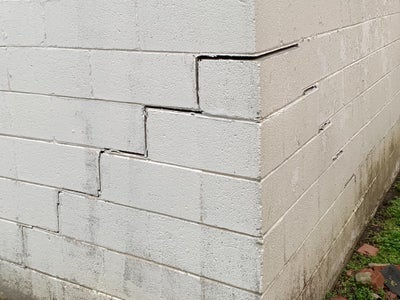
Bowing basement wall happen when they curve or lean inward due to external pressure from the soil outside your home. It’s most noticeable in the middle, as the pressure forces the less-reinforced part of the wall outward.
Basement walls usually bow in the middle, but the first signs of it starting to happen are walls cracks that run either horizontally, diagonally, or in a stair-step pattern.
Why Do Basement Walls Bow?
The most common factors that cause to basement walls bowing are as follows:
1. Poor Drainage
In Alberta, homes need to be ready for heavy winter snow and lots of rain because these forces can dramatically affect your basement. If the ground gets saturated, gutters, downspouts, and extensions are supposed to stop the water from gathering near the house’s foundation and basement. However, without adequate drainage systems like these, the water will collect around the basement walls, pushing against them inward.
2. Hydrostatic Pressure
In areas of Alberta with lots of rain and expanding soil, houses may have structural issues. This is due to the soil expanding when wet and contracting when dry, which puts pressure on house foundations and basement walls. Over time, this pressure can cause walls to bend and crack.
3. Seasonal Freezing and Thawing
Alberta’s freeze-thaw cycles, especially in spring, can damage basement walls. The repeated freezing and thawing of water can cause walls to bend.
4. Foundation Settlement
The soil underneath your home is always in motion—shifting, sinking, and generally settling out from underneath your home. Sometimes, if a house’s foundation settles unevenly, it can cause basement walls to bend as pressure builds around the walls.
Are Bowing Basement Walls Repairable?
Yes, basement walls can be repaired. They usually bow and leak for a common set of reasons that can all be addressed with professional help. So, don’t worry: with the right tools and methods, Groundworks can easily handle bending basement walls.
By choosing Groundworks, our technicians can uncover the root problems during a free inspection, and you’ll get comprehensive, long-lasting solutions for bending basement walls and any other type of foundation damage.
Repair Methods for Bowing Basement Walls
Restoring your walls to their original state usually demands precisely deployed supports and drainage systems. With Groundworks, you get the following repair solutions:
1. Basement Waterproofing
Basement waterproofing is a comprehensive way to keep water from damaging your basement foundation and causing mold growth. At Groundworks, our custom waterproofing solutions include sump pumps, interior drains, and vapor barriers to relieve the pressure around your walls.
2. Carbon Fiber Reinforcement, Steel I-Beams, and Wall Anchors
After waterproofing, structural reinforcement repairs the immediate signs of damage and prevents their further development. Depending on the severity of the damage, several methods could be employed.
- Carbon fiber straps, offering strength 10x greater than steel, can be applied to the weakest parts of your wall to stabilize them and redistribute hydrostatic pressure across their entire surface.
- The IntelliBrace™ System, our custom-engineered steel I-beams, secure against the wall from floor to ceiling, reducing bowing and stabilizing the home.
- Wall anchors, feature galvanized steel rods installed into the soil around your basement that then connect to interior wall plates. Each rod is securely fastened and then tightened from the inside to counteract the outside pressure. This process can gradually return the walls to a straight position and allow for any cosmetic repairs.
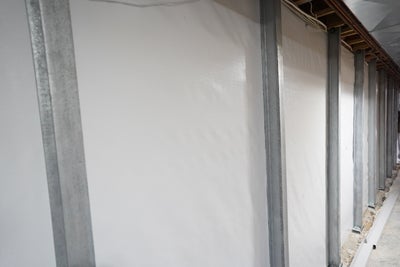
Why Address Bowing Walls Now?
You need to address the cause of bowing walls as soon as possible.
Without intervention, your basement walls will only get more damaged—cracks will get bigger, and your basement is like to flood more easily. All that means for you is costlier repairs later.
Choose Groundworks for Durable Bowing Wall Solutions

Choose Groundworks for the best experts in basement repair. We carefully check your basement and structure, then create a solution for any problems we find. Our goal is to fix current problems and prevent future ones.
Don’t risk your home’s safety and stability. Choose Groundworks. We offer more than just a quick fix. Our modern methods and specially made structural designs provide long-lasting stability for your home.
Bowing Walls FAQs
Delaying bowing basement wall repairs increases collapse risk. Our experts can evaluate the structure’s safety and inform you of potential risks.
Bowing walls indicate serious foundation problems needing professional repair. DIY fixes may not address the root issue, leaving a weak foundation and ongoing wall bowing.
Yes. A secure basement is key to your home’s structural integrity. Fixing bowing walls strengthens your house and restores its value and life.





